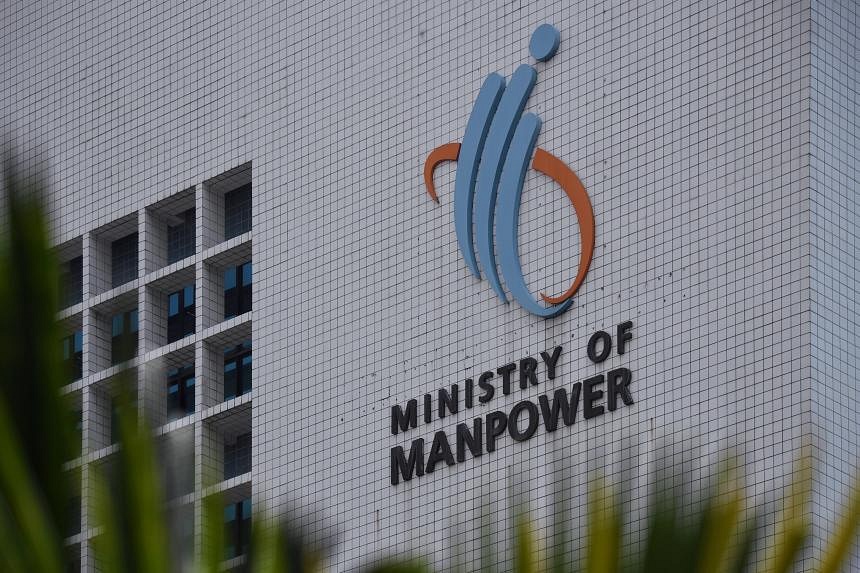SINGAPORE - All 10 of the foreign nationals charged on Aug 16 over their suspected involvement in offences including forgery, money laundering and resisting arrest held either an Employment Pass (EP) or a Dependant’s Pass (DP).
Responding to queries from The Straits Times, the Ministry of Manpower (MOM) said it is in contact with the police on investigations into the foreign nationals.
“These individuals held EPs and DPs. We will take the necessary action against them if serious offences are disclosed, in consultation with the police and the Attorney-General’s Chambers.”
The foreign nationals, aged between 31 and 44, were arrested on Tuesday morning, following an islandwide anti-money laundering raid by more than 400 officers that saw about $1 billion in assets seized or frozen.
They are believed to be connected to one another, and no one is a Singaporean or permanent resident.
Of the 10, three are Chinese nationals. As for the remaining seven, three are Cambodian, two are Cypriot, one is Turkish, and one is a Vanuatu national.
Another 12 people are assisting with investigations, while eight are wanted by the police.
The ministry said all employers and work pass applicants must declare that all the information contained in their applications is true and correct.
“This includes company details and applicants’ personal particulars, as well as work experience, salary and qualifications. MOM will assess all applications and look into any suspicious information.”
It added that it will not hesitate to prosecute errant individuals for false declaration offences under the Employment of Foreign Manpower Act.
Those found guilty face a fine of up to $20,000, up to two years’ imprisonment, or both, per charge.
“Employers found to have contravened the law will also have their work pass privileges suspended.”
Employment and immigration experts ST spoke to said that EP applications by Singapore-registered firms have generally been efficiently processed within 10 business days, with applications that need more time given an update within the timeframe.
Previously, most online applications were processed within three weeks.
Applications by an overseas company without a Singapore-registered company get processed within eight weeks in most cases.
An employer or employment agent submits an EP application on the candidate’s behalf.
The candidate, who does not need to be in Singapore when the application is made, will need to provide written consent of the application, according to the MOM website.
The employer or agent then submits an application form, which can be filled up by the candidate.
The form requires details of the candidate’s personal particulars, travel documents, work experience and educational qualifications, among others.
New applicants will need to meet a minimum qualifying salary of at least $5,000 per month for all sectors except financial services, which has a minimum of $5,500. All renewals from Sept 1 will be subject to these minimums, which increase progressively with age, too.
Also taking effect from Sept 1 is a points-based Complementarity Assessment framework, under which an EP application is scored based on both a candidate’s and his employer’s attributes.
In tandem, a requirement will come into force for verification proof of the candidate’s educational qualifications to be submitted for any application that wishes to gain points on the basis of these qualifications.
The personal particulars page of the candidate’s passport, and the company’s latest business profile or instant information registered with the Accounting and Corporate Regulatory Authority will need to be uploaded as supporting documentation.
The application fee is $105. If the pass is approved, the candidate will receive an in-principle approval letter, which is a pre-approved single-entry visa for the candidate to enter Singapore within six months.
Candidates must be in Singapore when the pass is issued, though others may be authorised to collect their physical EP card on their behalf later.
EP holders earning a minimum fixed monthly salary of $6,000, and who are sponsored by an established, Singapore-registered company, may also get DPs for their legally married spouse and unmarried children aged under 21, including legally adopted children.
If an EP application is still pending after 10 business days, it may be because additional documents or information are required for submission to MOM.
Examples of additional documentation MOM may ask for include a company’s bank statements, invoices or business contracts, said Ms Jacqueline Low, managing director of JBL Corporate Services, which advises on work pass applications.
Other types of information that she has seen requested include the company’s financial statements, a copy of the company’s office tenancy agreement, a list of current employees, as well as details of the candidate’s job responsibilities, related experience and credentials, and a salary comparison to similar job roles either within the company or in Singapore.
“Employees are often asked to provide evidence supporting their stated credentials and records, while business owners commonly face inquiries about their business investments,” said Dr David Leong of PeopleWorldwide Consulting.
Both Dr Leong and Ms Low noted that reasons for unsuccessful applications are not disclosed.
The longest EP approval Ms Low has seen is around 1½ months for a few candidates, before the streamlining of the application system in 2022, while Dr Leong said a three-month wait is not unheard of in rare cases.
“Applications undergo stringent algorithmic evaluations, and delays are uncommon unless inconsistencies arise. Results are typically released within the designated timeframe,” said Dr Leong.
He said applicants with questionable backgrounds face heightened scrutiny, especially when undisclosed information emerges during background checks.
“Undeclared records often pertain to offences committed in foreign jurisdictions, false declarations, or inappropriate document submissions,” Dr Leong added.


